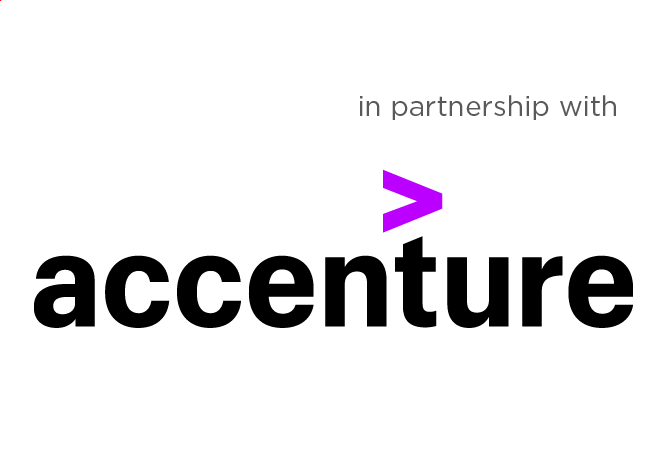The COVID-19 pandemic has caused unprecedented upheaval over the past year. As organisations went into survival mode during lockdown, learning and development (L&D) functions were presented with significant challenges. Many faced reduced budgets, changing demands, and not least the sudden switch to full digital delivery as face-to-face learning became restricted.
However, for some organisations and their learning teams, the crisis has proved to be an opportunity: to refresh their alignment with organisational needs, examine the enablers of collaboration and learning, to embrace digital technology and support employee reskilling and redeployment at a time of ongoing workforce disruption.
In this still uncertain climate, our research underscores the need for organisations to be curious, to step outside of their comfort zones and embrace new ways of delivering learning with impact for the digital age.
While these findings are based on UK data, the broader trends and implications should be of interest wherever you are based.
Explore the research findings
Download our survey report for full details of our findings and recommendations. Complementing the report is a set of case studies of seven high-profile organisations and their L&D journey through the pandemic. Their experiences will serve as helpful examples for those looking to steer their course through what may be a protracted and complex post-pandemic recovery.
The past year created a unique climate where often siloed business functions are now working together to solve critical business challenges. Now is the time to build forward and leverage that momentum to improve individual, team and organisational learning."
Key findings
- Around a third of organisations report reductions in budgets, L&D headcount and use of external consultants. Organisations who had been more severely impacted by the pandemic have had to make greater cuts to learning budgets.
- Only 18% of organisations think that their learning strategy, investment and resourcing will go back to what it was before the pandemic.
- Despite the seismic shift to digital learning, take-up of technologies that have the potential to make learning more engaging and effective, remains low. The proportion using mobile apps, chatbots, VR and AR animations or games is largely unchanged from last year.
- Organisations that adopt a more sophisticated approach to technology create a virtuous circle, generating an increased appetite for learning.
- Compared with last year, a greater proportion say their learning strategy is aligned with business priorities and the vast majority report that they are clear about the way learning adds value in their organisation.
- The switch from traditional forms of learning to digital has in some cases improved the way individuals support each other; there has been a significant upswing in the proportion of organisations saying they develop and maintain a climate of trust, as well as a rise in those that say employees are supporting each other to learn.
- Since last year, a greater proportion of organisations say they have assessed the impact of automation and how to redeploy employees affected (51%) as well as how roles are changing and how to reskill to meet these needs (64%).
- Organisations are more confident about their ability to address current skills gaps, with 72% reporting that they are able to effectively tackle skills gaps.
- While more organisations had online facilitator roles in place, only a minority had design roles, such as learning technologist/product owner (11%), digital asset creator (7%) and instructional designers (11%).
- Only a third of L&D professionals say they are proactive in identifying performance issues before recommending a solution, and only a quarter design and make recommendations using evidence-informed principles to address those issues.
Recommendations
In light of the survey findings, and acknowledging the huge impact of the pandemic on organisations, we set out a number of calls to action for practitioners:
- Reflect on what has worked well during the pandemic and what can be adapted to build back better.
- Embrace digital innovation – define your technology strategy in line with your learning strategy. Start small and experiment before scaling up.
- Co-create organisational value through continued cross-team working and cultivate collaboration between business and learning leaders.
- Harness the wider learning environment by agreeing the role of line managers in the L&D context, encouraging peer-to-peer connections and supporting individuals to apply their learning.
- Plan for the future skills your people and organisation need. Encourage continual learning, create the clear learning pathways and career choices.
- Be evidence-based: define your desired outcomes, engage key stakeholders, gather evidence and measure learning impact on performance.
About the research
We collected our research sample via a YouGov panel, supplemented by insights drawn from L&D professionals taken from across the CIPD’s network. Fieldwork took place in February 2021, with more than 1,200 people responding. The survey was specifically aimed at people working in HR/L&D or occupying senior roles, as the questions required specific knowledge on L&D practices and policy.
Access our earlier report and case studies
CIPD Trust
Tackling barriers to work today whilst creating inclusive workplaces of tomorrow.
Bullying
and harassment
Discover our practice guidance and recommendations to tackle bullying and harassment in the workplace.

Podcast 206: Digital innovation has revolutionised how we work and learn. But despite AI’s potential, scepticism prevails. Do L&D professionals need greater curiosity to explore how AI can support them and bolster learning outcomes?

Explore the CIPD’s point of view on essential skills, including recommendations for employers

Find out about the importance of neuroinclusive workplaces, what employers are doing and the working experiences of neurodivergent and neurotypical employees

Insight into how global issues are impacting people professionals in the UK, Ireland, Asia-Pacific, MENA and Canada

Insight into how global issues are impacting people professionals in Australia, Hong Kong, Malaysia and Singapore

Insight into how global issues are impacting people professionals in Egypt, the Kingdom of Saudi Arabia and the United Arab Emirates


